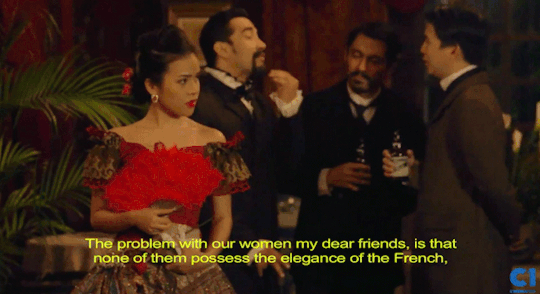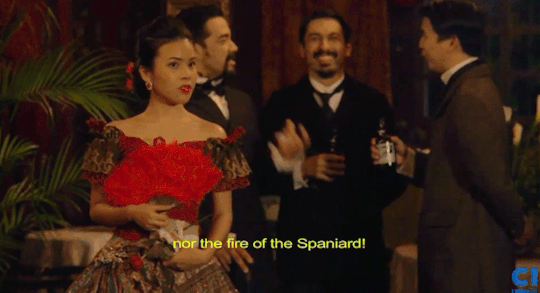#Filipina Empowerment
Explore tagged Tumblr posts
Text
Cupid's Philippines Scams
Photo by Rainier Ridao Apparently, Cupid has an evil sense of humour and punishes the weak. YouTube is now full of Cupid’s Philippines scams videos, so I decided to dedicate this week’s article to the subject. Now you are now single. You have probably decided to follow the enlightened men of the west. Heading east to find the love of your life. “Karens” For those of you who have read my…
#darren walley#darren walley consultancy#Filipina Beauty#Filipina Blog#Filipina Career#Filipina Culture#Filipina Empowerment#Filipina Family#Filipina Fashion#Filipina Fitness#Filipina Food#Filipina Haircare#Filipina Health#Filipina Inspiration#Filipina Lifestyle#Filipina magic#Filipina Makeup#Filipina Motherhood#Filipina Relationships#filipina scams#Filipina Style#Filipina Travel#Filipina Trends#Filipina Wellness#filipino scams
0 notes
Text
Turning Pain into Power: A Journey from Heartache to Positive Thinking
From heartache to empowerment, join FilipinaWanderer on her journey towards self-love and positive thinking. Let's turn pain into power, together.
Emotional pain can often feel like a heavy burden we carry alone. It can seep into our lives, casting shadows on our hearts. There was a time in my life, as a young, confused 20-year-old, when I, too, experienced such heartache. It was a period marked by the longing for understanding and the desire to be heard. I just wanted you to hear me. The pangs of emotional pain stemmed from feeling…

View On WordPress
0 notes
Text
Dress the Revolution: Hiraya Pilipina Empowers Women with Their Eye-Catching Statement Pieces
Angela Palma - November 16, 2023

Photo by Instagram/Hiraya Pilipina
"if the message speaks for you, it is made for you" - Cleo Loque (2021)
Women's empowerment has evolved through the years, and it has continued to expand, which has made the community and feminist group larger and larger. The growing awareness of women's empowerment signifies an important change in societal perspectives and promotes the growth of an advocacy community dedicated to gender equality.
Wearing statement pieces that show power through print, such as Hiraya Pilipina's products, is one way we can show our support and advocacy for women. Hiraya Pilipina, as a women-owned business, understands the challenges that women face on a daily basis. As a result, they put in a lot of work to create products that encourage women to embrace their unique selves and feel empowered. In the long run, Hiraya Pilipina is a brand that inspires women who are struggling to feel confident.

PHOTO BY INSTAGRAM/CLEOLOQUE
Cleo Loque, the founder of Hiraya Filipina, is a student who manages both her academics and her brand. When Cleo was just entering Grade 11 of her senior high school years at San Beda University-Rizal, she launched Hiraya Pilipina and issued its first catalog in July 2019. "To spearhead my own growing business makes me feel like a proud mother who sees her baby grow, blossom, and make an impact on the community," she said when asked about being a current young female CEO.
Cleo Loque sees her company as a lifestyle, a "home to women-empowering products." "Hiraya Pilipina is all about community. It is our vision to build a community of Filipino women across the globe who can see our brand as a safe space for them to listen and be heard," Loque stated. The CEO makes it clear that anyone can wear their empowering t-shirts. Loque emphasized that Hiraya Pilipina's goal is to create a brand that not only offers empowering products but also fosters a sense of belonging and support among Filipino women worldwide. By building a community, the brand aims to provide a safe space where women can share their stories, find inspiration, and empower one another. Additionally, Loque emphasizes that the empowering tees are inclusive and available for anyone who resonates with their message, regardless of gender identity. Their vision is to create a global community of Filipino women who see the brand as a safe haven.


Some of Hiraya Pilipina's famous best-selling prints are "Abante Babae" and "How are you". Not only has become a symbol of empowerment and solidarity among women, encouraging them to move forward and break down barriers but also promotes their health and well-being. Their eye-catching designs and low price make it a popular choice for those looking to make a fashion statement.
As for Hiraya Pilipina's Future products, Cleo Loque stated that "Although we started with statement shirts, masks, and bags, we are no longer leaning toward fashion. Our direction now is to improve women’s intimate care in the Philippines with our products such as nipple pasties, boob tapes, and hair removers. Soon, we’ll venture into period care and wellness. That’s the direction we’re going."




Hiraya Pilipina stands as a symbol of power in a world where fashion meets empowerment, joining stories of strength and unity into every print and design. As Cleo Loque puts it, "If the message speaks for you, it is made for you." Hiraya Pilipina's inspiring pieces transcend simple fashion; they embody a movement, inviting everyone to be part of a global community advocating women. As the brand confidently moves forward, expanding its range of products, it continues to redefine what it means to dress for a cause—a cause that speaks to women.
Sources:
-https://www.candymag.com/features/hiraya-pilipina-a1716-20210331-lfrm
-https://thebeat.asia/manila/venture/startups/gen-z-ceo-cleo-loque-on-championing-women-through-hiraya-pilipina
3 notes
·
View notes
Text
HOW MY MULTIRACIAL IDENTITY BECAME MY SOURCE OF INSPIRATION
youtube
Santana Demsey discusses the difficult experience of racial identification, particularly as a multiracial individual. Santana was born to a white birth mother and an absent biological father, and her birth certificate lists her ethnicity as white. However, her identity is not restricted to a single label. She might be identified as Jewish, Sephardic, Filipina, or Puerto Rican, depending on who is looking. While flexibility is invigorating, #Racial identity #Family heritage #Cultural acceptance #Self-esteem #Empowerment it makes feeling a sense of belonging difficult. Santana admits that as someone who wanders between many environments, she frequently felt like an outcast growing up. Santana sees being biracial as both a strength and a challenge. She views her capacity to navigate across cultures and groups as a superpower that enables her to connect with a wide range of individuals. However, because there is no obvious ethnic or cultural area to call her own, she experiences a distinct loneliness. This tension emphasizes the motivating nature of her path, as she has had to accept her varied identity against demands to adhere to narrow classifications. Her experience as a multiracial individual illuminates the larger problems of persons who cannot be classified into a single racial group. Santana's tale is motivating because she accepts and celebrates the complexities of her identity. It demonstrates that even when society imposes limits or uncertainty, one's identity can be a source of strength and flexibility. Santana's path inspires people to embrace their identities, even when societal conventions make it difficult to fit in. Santana's tale inspires and motivates, highlighting the value of self-acceptance and tenacity. Her experiences inspire others to discover strength in their individuality, even if it means navigating a society that isn't necessarily designed to support several identities. Her ability to find motivation in her hardships sends an inspiring message to anybody who has ever felt they don't belong.
0 notes
Text

Nadine Lustre: The Icon Who Redefined Stardom
Few names in Philippine entertainment are as impactful and enduring as Nadine Lustre. She is a trailblazer, style icon, and multi-talented artist who has captured the hearts of many with her authenticity, fierce individuality, and groundbreaking work.
From Girl Next Door to Box Office Queen
Nadine’s journey to superstardom began humbly, with early roles in teen shows and her membership in the girl group Pop Girls. However, it was her breakout role in the 2014 hit Diary ng Panget that catapulted her into the limelight. With her on-screen chemistry alongside James Reid, she quickly became a favorite in romantic comedies, further solidified by their partnership in the immensely popular On the Wings of Love.
Yet, what set Nadine apart from her peers was not just her undeniable acting chops or her girl-next-door appeal; it was her willingness to evolve. As she moved from rom-com sweetheart to dramatic actress in films like Never Not Love You and Ulan, Nadine showcased an emotional depth and maturity that cemented her as a force to be reckoned with in Philippine cinema. Her transformation was more than a reinvention—it was an artistic reawakening.
The Rise of a Multi-Hyphenate Artist
Acting was just one facet of Nadine’s expansive talents. Her venture into music took her popularity to new heights. In 2020, she released her first full-length album, Wildest Dreams, which was an introspective, ethereal dive into her thoughts and experiences. The album’s unique mix of electro-pop beats and poetic lyricism was a far cry from the mainstream sound that dominated Philippine pop, showing once again that Nadine wasn’t afraid to break the mold.
Her music, just like her acting, was deeply personal. It spoke of self-love, healing, and empowerment, and resonated with her fans, who saw in Nadine not just a star, but a role model who wasn’t afraid to be vulnerable.
Fashion and Advocacy: A Style Icon with Substance
Nadine’s influence extends beyond entertainment. She has become a fashion icon known for her fearless approach to style, often experimenting with bold, edgy looks that challenge conventional beauty standards in the Philippines. Her collaborations with major brands like H&M, where she launched her own swimwear line, cemented her position as a trendsetter.
But it’s her authenticity that sets her apart. Unlike many celebrities, Nadine isn’t afraid to speak her mind or showcase her true self, even when it means going against the grain. She is known for her unfiltered social media posts, her advocacy for mental health, and her dedication to environmental causes. Nadine frequently speaks out about the importance of caring for the environment, especially the Philippines’ fragile natural resources.
Breaking the Stereotypes, Inspiring a Generation
More than just an actress or singer, Nadine Lustre represents the modern Filipina—strong, independent, and unapologetically herself. She has broken countless stereotypes about what it means to be a female celebrity in the Philippines, proving that you don’t have to conform to traditional standards of beauty or behavior to succeed.
Her journey—from a teenage dreamer to an empowered artist and advocate—has inspired a generation of young Filipinos to embrace who they are and to chase their dreams, no matter how unconventional.
The Future Is Bright
As Nadine continues to push boundaries, it’s clear that her story is far from over. Whether through her music, acting, or advocacy, Nadine Lustre is an artist who refuses to be boxed in, and that’s exactly why she remains at the top of her game. Whatever she does next, one thing is certain—she will do it on her own terms, and the world will be watching.
In a time when authenticity is rare, Nadine Lustre stands as a shining example of what happens when talent meets courage.
Non-fiction Writing // Shekinah Grace Dinagsao
Image From Nadine Lustre's IG
The Daily Digest
0 notes
Text
From Factory Floors to Fortune: Filipina Entrepreneurship in Post-Soviet Hong Kong
The collapse of the Soviet Union in 1991 triggered a seismic shift in the global job market, creating ripples that reached far beyond Eastern Europe. One unexpected consequence was the opening of new opportunities for Overseas Filipino Workers (OFWs), particularly in regions like Hong Kong, which experienced a surge in demand for various skilled and unskilled laborers. This period marked a significant chapter in the ongoing narrative of Filipino migration, with many individuals, especially women, seizing the chance to work abroad, often in challenging roles such as machine operators, to support their families and build a better future.
The post-Soviet era saw a reshaping of global economic power dynamics. The newly independent states of the former Soviet Union underwent rapid economic transitions, often accompanied by instability and uncertainty. This period also witnessed the rise of China as a global economic powerhouse. Hong Kong, with its established infrastructure and free market economy, became a crucial gateway for trade and investment in the region. The resulting economic boom fueled a demand for labor, creating opportunities for migrant workers, including Filipinos.
For many Filipinos, Hong Kong represented a viable and relatively accessible destination. Geographic proximity, established Filipino communities, and a demand for domestic helpers, factory workers, and other laborers made it an attractive option. Among these laborers were machine operators, often working in manufacturing industries like textiles, electronics, and plastics. These jobs, while demanding and sometimes hazardous, provided a crucial income stream for families back home.
The working conditions for machine operators in Hong Kong, particularly during the early years of the post-Soviet era, were often difficult. Long hours, repetitive tasks, and exposure to potentially dangerous machinery were common concerns. Furthermore, language barriers and cultural differences sometimes led to misunderstandings and difficulties in navigating the workplace environment. The lack of robust labor protections in some sectors left many OFWs vulnerable to exploitation.
However, despite these challenges, Filipino machine operators demonstrated resilience and a strong work ethic. They played a vital role in Hong Kong's manufacturing sector, contributing to its economic growth. The remittances sent home by these OFWs became a lifeline for families in the Philippines, funding education, healthcare, and small businesses. These remittances also played a significant role in the Philippine economy, contributing substantially to the country's GDP.
While the narrative of the OFW often focuses on hardship and sacrifice, it is equally important to highlight the stories of success and empowerment, particularly among women. Many women who started their journeys as machine operators or in other demanding roles in Hong Kong have leveraged their experiences and savings to become entrepreneurs. These women, driven by ambition and a desire to create a better future for themselves and their families, have established businesses ranging from small retail shops and restaurants to import-export ventures and online businesses.
Their stories are testaments to the entrepreneurial spirit and resourcefulness of Filipino women. They often started with limited resources and faced numerous challenges, including navigating unfamiliar business landscapes and overcoming cultural barriers. However, their determination, coupled with the skills and knowledge gained through their work experiences, enabled them to overcome these hurdles and build successful enterprises. They represent a powerful force for economic growth and social mobility, both in the Philippines and in their adopted communities abroad.
These success stories offer valuable lessons for aspiring OFW entrepreneurs. They highlight the importance of financial literacy, strategic planning, and networking. They also demonstrate the power of perseverance and the importance of adapting to changing circumstances. The experience of working as a machine operator, while challenging, can equip individuals with valuable skills such as discipline, attention to detail, and problem-solving abilities, all of which can be transferable to the entrepreneurial realm.
The internet and the rise of e-commerce have also played a crucial role in empowering OFW entrepreneurs. Online platforms provide access to global markets, enabling them to reach customers beyond their immediate communities. Social media platforms have also become powerful tools for marketing and networking, allowing OFWs to connect with potential customers and collaborators.
Resources like OFWJobs.org (https://www.ofwjobs.org/) provide valuable information and support for OFWs seeking employment opportunities and navigating the challenges of working abroad. Such platforms offer a crucial link between job seekers and potential employers, helping to facilitate the process of finding suitable work and ensuring fair employment practices. They also provide resources on various aspects of working abroad, including legal rights, financial management, and cultural adaptation.
The post-Soviet era marked a significant turning point in the history of OFW migration. While the challenges faced by OFWs, particularly machine operators in Hong Kong, were substantial, their resilience and hard work have paved the way for numerous success stories. The emergence of women OFW entrepreneurs is a testament to their strength, determination, and entrepreneurial spirit. Their achievements inspire future generations of OFWs and contribute to the ongoing narrative of Filipino migration as a story of resilience, adaptability, and ultimately, success.
The landscape of OFW work continues to evolve, influenced by global economic shifts and technological advancements. The demand for specific skills and the nature of work itself are constantly changing. However, the core values of hard work, perseverance, and the desire for a better future remain constant driving forces for OFWs around the world. The stories of women OFW entrepreneurs serve as beacons of hope and inspiration, demonstrating that even in the face of adversity, it is possible to achieve success and build a brighter future. They are not just contributors to their families and the Philippine economy; they are agents of change, shaping their own destinies and inspiring others to do the same. Their journey is a testament to the enduring power of the human spirit and the transformative potential of migration.
0 notes
Text
Calling All Filipina Creatives: Extended Deadline for Sining Filipina
The submission deadline is extended until February 5, 2024 In a celebration of art, women empowerment, and the boundless creativity of Filipina artists, BDO Unibank, Inc. and SM Supermalls, in collaboration with the Zonta Club of Makati and Environs, proudly announce the launch of the first-ever all-female national art competition in the Philippines – Sining Filipina. This groundbreaking…

View On WordPress
#BDO Unibank#BDO Unibank Inc#Filipina artists#Sining Filipina#SM Supermalls#Zonta Club of Makati and Environs
0 notes
Text
Calling All Filipina Creatives: Extended Deadline for Sining Filipina
The submission deadline is extended until February 5, 2024 In a celebration of art, women empowerment, and the boundless creativity of Filipina artists, BDO Unibank, Inc. and SM Supermalls, in collaboration with the Zonta Club of Makati and Environs, proudly announce the launch of the first-ever all-female national art competition in the Philippines – Sining Filipina. This groundbreaking…

View On WordPress
0 notes
Text
WOW: Women Of Wonders
Beneath the shimmering gowns and infectious smiles of Filipina beauty queens lies a tapestry woven with both threads of empowerment and exploitation. Philippine pageantry, a deeply ingrained cultural phenomenon, sparks passionate debates, leaving one to ponder: are these glittering contests catalysts for progress or vestiges of a bygone era?
On the one hand, pageantry shines as a beacon of female liberation. The stage transforms into a platform for intelligent, talented women to challenge narrow beauty standards and showcase their diverse strengths. Articulate contestants advocate for social causes, inspiring future generations to dream big and break free from societal constraints. This newfound confidence ripples outward, empowering young girls to embrace their potential and shatter glass ceilings.
Furthermore, pageantry serves as a vibrant canvas for celebrating Filipino heritage. Every sashay across the stage embodies cultural dances, languages, and intricate costumes, painting a vivid portrait of the archipelago's rich tapestry. This celebration of identity instills pride not only within the Philippines but also within its far-flung diaspora, connecting scattered communities through a shared cultural pulse.
Beyond the cultural spotlight, pageantry can be a catalyst for economic prosperity. Major competitions attract international attention, igniting a tourism boom and showcasing the Philippines as a dynamic and welcoming destination. This influx of visitors translates into jobs and revenue, potentially propelling economic growth and development.
However, the glitter masks a darker underbelly. Critics argue that pageantry perpetuates the objectification of women, reducing them to mere vessels of physical beauty. The relentless focus on appearance fuels insecurities and unhealthy body image issues, particularly among young girls who internalize the message that worth is measured in inches and dress sizes.
Moreover, the "ideal Filipina" presented on the pageant stage often adheres to outdated gender stereotypes. Critics argue that these contests promote a one-dimensional image of a submissive, domestic woman, reinforcing traditional and restrictive roles that limit women's opportunities and aspirations.
The commercialization of pageantry raises further concerns. Some argue that the pursuit of profit has eclipsed the celebration of cultural values and the well-being of contestants. Exploitation and pressure to conform to particular expectations can leave emotional scars, casting a shadow over the supposed empowerment narrative.
Finally, the emphasis on physical beauty and stage presence often overshadows intellectual depth and social awareness. Critics argue that this superficiality overlooks crucial qualities like leadership and critical thinking, potentially hindering the development of well-rounded and impactful role models.
Therefore, pageantry in the Philippines presents a complex enigma. While it has the potential to empower women and celebrate culture, it also risks perpetuating harmful stereotypes and exploiting vulnerabilities. The task at hand is not to dismantle this deeply ingrained tradition, but to evolve it, harnessing its potential for good while critically addressing its pitfalls.
Moving forward, pageantry can become a transformative platform by prioritizing intellectual depth alongside physical beauty, promoting diverse notions of Filipina identity, and ensuring ethical treatment of contestants. Embracing social responsibility and advocating for meaningful causes can further propel pageantry into a realm of true empowerment and progress.
Only then can the dazzling spotlight truly illuminate a path towards a future where Filipina beauty shines not just on stage, but in every facet of society, fueled by confidence, intellect, and a fierce passion for progress.
0 notes
Text
Study Guide 2.2 l The Philippine Experience in Gender Advocacy
Learning Activity 2.1.1
Melchora Aquino - Known as Tandang Sora, she embodies the true spirit of a Filipina. Despite her age and gender, and in the face of Spanish brutality, she chose to resist and support the revolution. I admire her because she defied gender norms and demonstrated that a Filipina can be powerful and effect change. Fortunately, Tandang Sora’s legacy continues to inspire modern Filipinas to be brave in the face of adversity.
2. Maria Clara - This character, from Rizal’s “Noli Me Tangere” and its sequel “El Filibusterismo”, represents the Philippines during the Spanish colonization. She is often held up as the ideal of Filipina beauty, a notion I find problematic. Maria Clara is portrayed as a vulnerable woman who is expected to submit to men and authority. She adheres to societal norms and does not challenge the gender inequalities she faces, a stance I strongly disagree with. Regrettably, some people, particularly those from older generations, still uphold the Maria Clara standard and criticize women who do not conform to this image.
Learning Activity 2.2.2
I used to think that women are only limited to specific roles in the society.
Now I know that there is so much more that we can do and that we should not adhere to such conventional expectations from the society.
However, I am not sure if other women have already realized what I did because some are still reluctant to change and continues to be submissive.
I plan to inspire those women who are either refusing women empowerment or are hindered by other factors in their environment
Overall, I feel genuinely happy to be exposed with these topics as it gave me an idea about the struggles of women, especially in the Philippines, throughout history.
0 notes
Text
How the Recent Success of the Women’s World Cup and Barbie Can Affect Your Young Girl
In an era marked by transformative shifts and evolving societal paradigms, the resolute surge of girl power has unfurled its wings with an unprecedented vigor, weaving an intricate tapestry of empowerment and inspiration across the global landscape, and of course, including the Philippines. As the fervent and continuous call for equality, the narrative of feminine prowess resonates more compellingly than ever before, casting aside archaic stereotypes and patriarchy, finally embracing the full spectrum of human potential through the social awareness that women are just as good enough if not better than men.
Such social awareness and women empowerment can be spread through the timeless portal of storytelling and spectacle: cinema. You probably have visited the cinema near your subdivisions along Daang Hari these past 3 months. With many blockbuster movies that are classic and nostalgic such as The Little Mermaid, and contemporary socially groundbreaking masterpieces like Barbie, both of them show the voices of strong, resilient female characters. Another recent women's victory that you may have witnessed while watching your televisions, one of many in your subdivisions along Daang Hari that are showcasing the raw talent our youth has, is the Philippines' historical win at the 2023 FIFA Women's World Cup. Stereotypically, sports are known to be the playground of men. Well, through this, it is indeed true that our Filipina women can dominate in this so-called masculine endeavor which is the huff and tough of sports.
1 note
·
View note
Text
Filipina Empowerment in ARDP’s ENCANTADA
Whiplike action of the hair is one of the unique moves highlighting femininity by choreographer Agnes Locsin. ENCANTADA opening night was at the SAMSUNG Performing Arts Theater, Ayala Malls Circuit, April 14, 2023. There will be a run at the Metropolitan Theater this weekend – April 22 and 23. Photo by Jude Bautista Written and photographed By Jude Bautista Long hair has always been a symbol of…

View On WordPress
0 notes
Text
Miss CosmoWorld Philippines Media Launch
Miss CosmoWorld Philippines: A Crown to Behold! It is our mission to provide life-changing value, enhancing opportunities for deserving and world-class Filipinas. Today, women empowerment is not only limited to promoting a woman’s sense of self-worth, their ability to make their own choices, and their ability to influence social change for themselves and raising the status of women through…

View On WordPress
0 notes
Text
ON POLITICS AND TAKEAWAYS
The State of the Filipino Women: Facilitating and Hindering Factors
The current status of women in the Philippines is both a cause for optimism and a reason to accelerate efforts for promoting women empowerment. In the latest Global Gender Gap report, the Philippines occupies the 17th place, with 78.4% of its overall gender gap closed to date. This performance is the second best in the EAP region, after New Zealand. A key driver behind the progress has been the Philippine Magna Carta for Women, a landmark law signed nearly 13 years ago seeking to eliminate discrimination against women.
However, despite the impressive performance in closing key gender gaps, I still believe in the striking fact that women empowerment in the country remains persistently low. Among the possible reasons are: heavy (unpaid) responsibilities, wage gap, illiteracy, and limited participation due to traditional views.
Heavy (unpaid) responsibilities
Women continue to carry the load when it comes to unpaid work like indoor housework, cooking, supervision of children, groceries, which makes it hard for them to pursue their careers. A large proportion of women are held back from productive opportunities by their family responsibilities and the concentration of women in high-skill positions declines considerably when they have young children.
Wage gap
According to World Bank, working women in the Philippines earn just 76% of what Filipino men do. It is actually rampant in the agriculture sector; the latest data from the Philippine Statistics Authority (PSA) showed that men working in the agriculture sector were paid P335 per day, higher than the average wage rate of female farm workers at P304.60 a day.
Illiteracy
According to World Data Atlas, adult female illiteracy for Philippines was 44.6 %. Illiteracy negatively impacts women because it excludes them from political engagement, affects their ability to earn a livelihood, and it can increase the prevalence of gender-based violence.
Limited participation due to traditional views
More Filipinas are becoming involved in public service, but they still make up just one-fifth of the government. One reason considered is that traditionally, Filipinos think that male leaders are more rational and logic-based than women. Hence, women are still underrepresented because of the lack of motivation to join a men-dominated politics.
What the government can actually do to improve women empowerment is to implement policies and programs that increase female participation in the Philippines. One, make sure to reach those who are unable to go to school instead of just encouraging them from afar. Two, provide alternatives to childcare in the home. Three, promote policies supporting flexible work arrangements, including work from home. Three, address gendered social norms that affect women’s political participation through media campaigns, behavioral and attitude change interventions that influence opinions about masculinity and gender roles. Lastly, implement a strong law that enables equal pay for equal work regardless of gender.
0 notes
Photo


Mahirap maging Pilipina, ngunit masarap sa pakiramdam na sa panahon ni Rizal, itinuring n’yang kapantay ng kalalakihan ang kababaihan. Malinaw ito sa kanyang sulat para sa kababaihan ng Malolos.
To the Young Women of Malolos
by José Rizal
When I wrote Noli Me Tangere, I asked myself whether bravery was a common thing in the young women of our people. I brought back to my recollection and reviewed those I had known since my infancy, but there were only few who seem to come up to my ideal. There was, it is true, an abundance of girls with agreeable manners, beautiful ways, and modest demeanor, but there was in all an admixture of servitude and deference to the words or whims of their so-called "spiritual fathers" (as if the spirit or soul had any father other than God), due to excessive kindness, modesty, or perhaps ignorance. They seemed faced plants sown and reared in darkness, having flowers without perfume and fruits without sap.
However, when the news of what happened at Malolos reached us, I saw my error, and great was my rejoicing. After all, who is to blame me? I did not know Malolos nor its young women, except one called Emila [Emilia Tiongson, whom Rizal met in 1887], and her I knew by name only.
Now that you have responded to our first appeal in the interest of the welfare of the people; now that you have set an example to those who, like you, long to have their eyes opened and be delivered from servitude, new hopes are awakened in us and we now even dare to face adversity, because we have you for our allies and are confident of victory. No longer does the Filipina stand with her head bowed nor does she spend her time on her knees, because she is quickened by hope in the future; no longer will the mother contribute to keeping her daughter in darkness and bring her up in contempt and moral annihilation. And no longer will the science of all sciences consist in blind submission to any unjust order, or in extreme complacency, nor will a courteous smile be deemed the only weapon against insult or humble tears the ineffable panacea for all tribulations. You know that the will of God is different from that of the priest; that religiousness does not consist of long periods spent on your knees, nor in endless prayers, big rosarios, and grimy scapularies [religious garment showing devotion], but in a spotless conduct, firm intention and upright judgment. You also know that prudence does not consist in blindly obeying any whim of the little tin god, but in obeying only that which is reasonable and just, because blind obedience is itself the cause and origin of those whims, and those guilty of it are really to be blamed. The official or friar can no longer assert that they alone are responsible for their unjust orders, because God gave each individual reason and a will of his or her own to distinguish the just from the unjust; all were born without shackles and free, and nobody has a right to subjugate the will and the spirit of another your thoughts. And, why should you submit to another your thoughts, seeing that thought is noble and free?
It is cowardice and erroneous to believe that saintliness consists in blind obedience and that prudence and the habit of thinking are presumptuous. Ignorance has ever been ignorance, and never prudence and honor. God, the primal source of all wisdom, does not demand that man, created in his image and likeness, allow himself to be deceived and hoodwinked, but wants us to use and let shine the light of reason with which He has so mercifully endowed us. He may be compared to the father who gave each of his sons a torch to light their way in the darkness bidding them keep its light bright and take care of it, and not put it out and trust to the light of the others, but to help and advise each other to fiind the right path. They would be madman were they to follow the light of another, only to come to a fall, and the father could unbraid them and say to them: "Did I not give each of you his own torch," but he cold not say so if the fall were due to the light of the torch of him who fell, as the light might have been dim and the road very bad.
The deceiver is fond of using the saying that "It is presumptuous to rely on one's own judgment," but, in my opinion, it is more presumptuous for a person to put his judgment above that of the others and try to make it prevail over theirs. It is more presumptuous for a man to constitute himself into an idol and pretend to be in communication of thought with God; and it is more than presumptuous and even blasphemous for a person to attribute every movement of his lips to God, to represent every whim of his as the will of God, and to brand his own enemy as an enemy of God. Of course, we should not consult our own judgment alone, but hear the opinion of others before doing what may seem most reasonable to us. The wild man from the hills, if clad in a priest's robe, remains a hillman and can only deceive the weak and ignorant. And, to make my argument more conclusive, just buy a priest's robe as the Franciscans wear it and put it on a carabao [domestic water buffalo], and you will be lucky if the carabao does not become lazy on account of the robe. But I will leave this subject to speak of something else.
Youth is a flower-bed that is to bear rich fruit and must accumulate wealth for its descendants. What offspring will be that of a woman whose kindness of character is expressed by mumbled prayers; who knows nothing by heart but awits [hymns], novenas, and the alleged miracles; whose amusement consists in playing panguingue [a card game] or in the frequent confession of the same sins? What sons will she have but acolytes, priest's servants, or cock fighters? It is the mothers who are responsible for the present servitude of our compatriots, owing to the unlimited trustfulness of their loving hearts, to their ardent desire to elevate their sons Maturity is the fruit of infancy and the infant is formed on the lap of its mother. The mother who can only teach her child how to kneel and kiss hands must not expect sons with blood other than that of vile slaves. A tree that grows in the mud is unsubstantial and good only for firewood. If her son should have a bold mind, his boldness will be deceitful and will be like the bat that cannot show itself until the ringing of vespers. They say that prudence is sanctity. But, what sanctity have they shown us? To pray and kneel a lot, kiss the hand of the priests, throw money away on churches, and believe all the friar sees fit to tell us; gossip, callous rubbing of noses. . . .
As to the mites and gifts of God, is there anything in the world that does not belong to God? What would you say of a servant making his master a present of a cloth borrowed from that very master? Who is so vain, so insane that he will give alms to God and believe that the miserable thing he has given will serve to clothe the Creator of all things? Blessed be they who succor their fellow men, aid the poor and feed the hungry; but cursed be they who turn a dead ear to supplications of the poor, who only give to him who has plenty and spend their money lavishly on silver altar hangings for the thanksgiving, or in serenades and fireworks. The money ground out of the poor is bequeathed to the master so that he can provide for chains to subjugate, and hire thugs and executioners. Oh, what blindness, what lack of understanding.
Saintliness consists in the first place in obeying the dictates of reason, happen what may. "It is acts and not words that I want of you," said Christ. "Not everyone that sayeth unto me, Lord, Lord shall enter into the kingdom of heaven; but he that doeth the will of my Father which is in Heaven." Saintliness does not consist in abjectness, nor is the successor of Christ to be recognized by the fact that he gives his hand to be kissed. Christ did not give the kiss of peace to the Pharisees and never gave his hand to be kissed. He did not cater to the rich and vain; He did not mention scapularies, nor did He make rosaries, or solicit offerings for the sacrifice of the Mass or exact payments for His prayers. Saint John did not demand a fee on the River Jordan, nor did Christ teach for gain. Why, then, do the friars now refuse to stir a foot unless paid in advance? And, as if they were starving, they sell scapularies, rosaries, bits, and other things which are nothing but schemes for making money and a detriment to the soul; because even if all the rags on earth were converted into scapularies and all the trees in the forest into rosaries, and if the skins of all the beasts were made into belts, and if all the priests of the earth mumbled prayers over all this and sprinkled oceans of holy water over it, this would not purify a rogue or condone sin where there is no repentance. Thus, also, through cupidity and love of money, they will, for a price, revoke the numerous prohibitions such as those against eating meat, marrying close relatives, etc. You can do almost anything if you but grease their palms. Why that? Can God be bribed and bought off, and blinded by money, nothing more nor less than a friar? The brigand who has obtained a bull of compromise can live calmly on the proceeds of his robbery, because he will be forgiven. God, then, will sit at a table where theft provides the viands? Has the Omnipotent become a pauper that He must assume the role of the excise man or gendarme? If that is the God whom the friar adores, then I turn my back upon that God.
Let us be reasonable and open our eyes, especially you women, because you are the first to influence the consciousness of man. Remember that a good mother does not resemble the mother that the friar has created; she must bring up her child to be the image of the true God, not of a blackmailing, a grasping God, but of a God who is the father of us all, who is just; who does not suck the life-blood of the poor like a vampire, nor scoffs at the agony of the sorely beset, nor makes a crooked path of the path of justice. Awaken and prepare the will of our children towards all that is honorable, judged by proper standards, to all that is sincere and firm of purpose, clear judgment, clear procedure, honesty in act and deed, love for the fellowman and respect for God; this is what you must teach your children. And, seeing that life is full of thorns and thistles, you must fortify their minds against any stroke of adversity and accustom them to danger. The people cannot expect honor nor prosperity so long as they will educate their children in a wrong way, so long as the woman who guides the child in his steps is slavish and ignorant. No good water comes from a turbid, bitter spring; no savory fruit comes from acrid seed.
The duties that woman has to perform in order to deliver the people from suffering are of no little importance, but be they as they may, they will not be beyond the strength and stamina of the Filipino people. The power and good judgment of the women of the Philippines are well known, and it is because of this that she has been hoodwinked, and tied, and rendered pusillanimous, and now her enslavers rest at ease, because so long as they can keep the Filipina mother a slave, so long will they be able to make slaves of her children. The cause of the backwardness of Asia lies in the fact that there the women are ignorant, are slaves; while Europe and America are powerful because there the women are free and well-educated and endowed with lucid intellect and a strong will.
We know that you lack instructive books; we know that nothing is added to your intellect, day by day, save that which is intended to dim its natural brightness; all this we know, hence our desire to bring you the light that illuminates your equals here in Europe. If that which I tell you does not provoke your anger, and if you will pay a little attention to it then, however dense the mist may be that befogs our people, I will make the utmost efforts to have it dissipated by the bright rays of the sun, which will give light, thought they be dimmed. We shall not feel any fatigue if you help us: God, too, will help to scatter the mist, because He is the God of truth: He will restore to its pristine condition the fame of the Filipina in whom we now miss only a criterion of her own, because good qualities she has enough and to spare. This is our dream; this is the desire we cherish in our hearts; to restore the honor of woman, who is half of our heart, our companion in the joys and tribulations of life. If she is a maiden, the young man should love her not only because of her beauty and her amiable character, but also on account of her fortitude of mind and loftiness of purpose, which quicken and elevate the feeble and timid and ward off all vain thoughts. Let the maiden be the pride of her country and command respect, because it is a common practice on the part of Spaniards and friars here who have returned from the Islands to speak of the Filipina as complaisant and ignorant, as if all should be thrown into the same class because of the missteps of a few, and as if women of weak character did not exist in other lands. As to purity what could the Filipina not hold up to others!
Nevertheless, the returning Spaniards and friars, talkative and fond of gossip, can hardly find time enough to brag and bawl, amidst guffaws and insulting remarks, that a certain woman was thus; that she behaved thus at the convent and conducted herself thus with the Spaniards who on the occasion was her guest, and other things that set your teeth on edge when you think of them which, in the majority of cases, were faults due to candor, excessive kindness, meekness, or perhaps ignorance and were all the work of the defamer himself. There is a Spaniard now in high office, who has set at our table and enjoyed our hospitality in his wanderings through the Philippines and who, upon his return to Spain, rushed forthwith into print and related that on one occasion in Pampanga he demanded hospitality and ate, and slept at a house and the lady of the house conducted herself in such and such a manner with him; this is how he repaid the lady for her supreme hospitality! Similar insinuations are made by the friars to the chance visitor from Spain concerning their very obedient confesandas, hand-kissers, etc., accompanied by smiles and very significant winkings of the eye. In a book published by D. Sinibaldo de Mas and in other friar sketches sins are related of which women accused themselves in the confessional and of which the friars made no secret in talking to their Spanish visitors seasoning them, at the best, with idiotic and shameless tales not worthy of credence. I cannot repeat here the shameless stories that a friar told Mas and to which Mas attributed no value whatever. Every time we hear or read anything of this kind, we ask each other: Are the Spanish women all cut after the pattern of the Holy Virgin Mary and the Filipinas all reprobates? I believe that if we are to balance accounts in this delicate question, perhaps, . . . But I must drop the subject because I am neither a confessor nor a Spanish traveler and have no business to take away anybody's good name. I shall let this go and speak of the duties of women instead.
A people that respect women, like the Filipino people, must know the truth of the situation in order to be able to do what is expected of it. It seems an established fact that when a young student falls in love, he throws everything to the dogs -- knowledge, honor, and money, as if a girl could not do anything but sow misfortune. The bravest youth becomes a coward when he married, and the born coward becomes shameless, as if he had been waiting to get married in order to show his cowardice. The son, in order to hide his pusillanimity, remembers his mother, swallows his wrath, suffers his ears to be boxed, obeys the most foolish order, and and becomes an accomplice to his own dishonor. It should be remembered that where nobody flees there is no pursuer; when there is no little fish, there can not be a big one. Why does the girl not require of her lover a noble and honored name, a manly heart offering protection to her weakness, and a high spirit incapable of being satisfied with engendering slaves? Let her discard all fear, let her behave nobly and not deliver her youth to the weak and faint-hearted. When she is married, she must aid her husband, inspire him with courage, share his perils, refrain from causing him worry and sweeten his moments of affection, always remembering that there is no grief that a brave heart can not bear and there is no bitterer inheritance than that of infamy and slavery. Open your children's eyes so that they may jealously guard their honor, love their fellowmen and their native land, and do their duty. Always impress upon them they must prefer dying with honor to living in dishonor. The women of Sparta should serve you as an example should serve you as an example in this; I shall give some of their characteristics.
When a mother handed the shield to her son as he was marching to battle, she said nothing to him but this: "Return with it, or on it," which mean, come back victorious or dead, because it was customary with the routed warrior to throw away his shield, while the dead warrior was carried home on his shield. A mother received word that her son had been killed in battle and the army routed. She did not say a word, but expressed her thankfulness that her son had been saved from disgrace. However, when her son returned alive, the mother put on mourning. One of the mothers who went out to meet the warriors returning from battle was told by one that her three sons had fallen. I do not ask you that, said the mother, but whether we have been victorious or not. We have been victorious -- answered the warrior. If that is so, then let us thank God, and she went to the temple.
Once upon a time a king of theirs, who had been defeated, hid in the temple, because he feared their popular wrath. The Spartans resolved to shut him up there and starve him to death. When they were blocking the door, the mother was the first to bring stones. These things were in accordance with the custom there, and all Greece admired the Spartan woman. Of all women -- a woman said jestingly -- only your Spartans have power over the men. Quite natural -- they replied -- of all women only we give birth to men. Man, the Spartan women said, was not born to life for himself alone but for his native land. So long as this way of thinking prevailed and they had that kind of women in Sparta, no enemy was able to put his foot upon her soil, nor was there a woman in Sparta who ever saw a hostile army.
I do not expect to be believed simply because it is I who am saying this; there are many people who do not listen to reason, but will listen only to those who wear the cassock or have gray hair or no teeth; but while it is true that the aged should be venerated, because of their travails and experience, yet the life I have lived, consecrated to the happiness of the people, adds some years, though not many of my age. I do not pretend to be looked upon as an idol or fetish and to be believed and listened to with the eyes closed, the head bowed, and the arms crossed over the breast; what I ask of all is to reflect on what I tell him, think it over and shift it carefully through the sieve of reasons.
First of all. That the tyranny of some is possible only through cowardice and negligence on the part of others.
Second. What makes one contemptible is lack of dignity and abject fear of him who holds one in contempt.
Third. Ignorance is servitude, because as a man thinks, so he is; a man who does not think for himself and allowed himself to be guided by the thought of another is like the beast led by a halter.
Fourth. He who loves his independence must first aid his fellowman, because he who refuses protection to others will find himself without it; the isolated rib in the buri is easily broken, but not so the broom made of the ribs of the palm bound together.
Fifth. If the Filipina will not change her mode of being, let her rear no more children, let her merely give birth to them. She must cease to be the mistress of the home, otherwise she will unconsciously betray husband, child, native land, and all.
Sixth. All men are born equal, naked, without bonds. God did not create man to be a slave; nor did he endow him with intelligence to have him hoodwinked, or adorn him with reason to have him deceived by others. It is not fatuous to refuse to worship one's equal, to cultivate one's intellect, and to make use of reason in all things. Fatuous is he who makes a god of him, who makes brutes of others, and who strives to submit to his whims all that is reasonable and just.
Seventh. Consider well what kind of religion they are teaching you. See whether it is the will of God or according to the teachings of Christ that the poor be succored and those who suffer alleviated. Consider what they preaching to you, the object of the sermon, what is behind the masses, novenas, rosaries, scapularies, images, miracles, candles, belts, etc. etc; which they daily keep before your minds; ears and eyes; jostling, shouting, and coaxing; investigate whence they came and whiter they go and then compare that religion with the pure religion of Christ and see whether the pretended observance of the life of Christ does not remind you of the fat milch cow or the fattened pig, which is encouraged to grow fat nor through love of the animal, but for grossly mercenary motives.
Let us, therefore, reflect; let us consider our situation and see how we stand. May these poorly written lines aid you in your good purpose and help you to pursue the plan you have initiated. "May your profit be greater than the capital invested;" and I shall gladly accept the usual reward of all who dare tell your people the truth. May your desire to educate yourself be crowned with success; may you in the garden of learning gather not bitter, but choice fruit, looking well before you eat because on the surface of the globe all is deceit, and the enemy sows weeds in your seedling plot.
All this is the ardent desire of your compatriot.
JOSÉ RIZAL
***
Ang mga larawan ay kuha sa pelikulang Dahling Nick.
Ang buong kopya ng To the Young Women of Malolos ay nakuha sa https://kwentongebabuhayrizal.blogspot.com/
#kalakian#dahling nick#pelikulang pilipino#nick joaquin#women empowerment#flipino film#gabby padilla#raymond bagatsing#filipino#filipina#pilipina#pilipino#philippines#sexism#patriarchy#feminism#jose rizal#to the young women of malolos#rizal's letter to the maidens of malolos#makata#poet#equality
2 notes
·
View notes
Text
Leading the Way Home: Filipina Housekeepers in Jordan, Social Media Influence, and the Rise of Professional Certification
The sun rises over Amman, casting long shadows across the bustling city. Inside a quiet apartment, Maria, a Filipina housekeeper, begins her day. Thousands of miles from her own home and family, she carries the weight of their hopes and dreams on her shoulders. Maria is one of the hundreds of thousands of Overseas Filipino Workers (OFWs) who have sought opportunities abroad, many of whom, like Maria, work as domestic helpers in Jordan. While the remittances they send back home contribute significantly to the Philippine economy, their journey is often fraught with challenges, from navigating unfamiliar cultural landscapes to grappling with issues of fair treatment and professional growth.
The phenomenon of Filipinos seeking work overseas, particularly in the domestic sector, has deep roots. Economic pressures, limited opportunities back home, and the promise of a better future for their families drive many Filipinos to seek employment abroad. Jordan, with its growing economy and demand for domestic workers, has become a popular destination for OFWs. While some find fulfilling employment and build strong relationships with their employers, others face exploitation, abuse, and a lack of legal protection. This disparity highlights the urgent need for better support systems and regulations for OFWs, both within the Philippines and in host countries like Jordan.
The rise of social media has added another layer of complexity to the OFW experience. While platforms like Facebook, Instagram, and TikTok offer a way for OFWs to connect with their loved ones back home and build communities with fellow Filipinos abroad, they also present new challenges. The curated perfection often portrayed on social media can create unrealistic expectations and intensify feelings of homesickness and isolation. Furthermore, the spread of misinformation and the potential for online scams targeting vulnerable OFWs are significant concerns.
However, social media also presents unique opportunities. Increasingly, OFWs are leveraging social media to share their experiences, advocate for their rights, and connect with potential employers. Platforms like OFWJobs.org provide valuable resources and information about job openings, legal rights, and support networks. Social media influencers within the OFW community are playing a crucial role in raising awareness about important issues, sharing practical advice, and empowering fellow OFWs to navigate the challenges and opportunities of working abroad. These online communities offer a vital lifeline, providing emotional support, practical guidance, and a sense of belonging in a foreign land.
One area where this empowerment is particularly evident is the growing emphasis on professional development and certification for domestic workers. While historically, domestic work has been undervalued and often overlooked in terms of formal training and recognition, there has been a noticeable shift in recent years. The "professional certification boom," particularly in the last decade, reflects a growing recognition of the skills and expertise required in domestic work. Organizations, both in the Philippines and internationally, are offering training programs and certifications in areas such as childcare, eldercare, cooking, and household management. This trend empowers domestic workers like Maria to enhance their skills, improve their employability, and negotiate better wages and working conditions.
This push for professionalization is particularly important in Jordan, where the demand for skilled domestic workers is high. By acquiring certifications, OFWs can demonstrate their competence and professionalism, gaining a competitive edge in the job market. This not only benefits individual workers but also contributes to raising the overall standards of domestic work in the country. The impact of these certifications, however, is still unfolding, and further research is needed to assess their long-term effects on wages, working conditions, and the overall perception of domestic work.
Leadership development within the OFW community is another critical area that is gaining traction. While often overlooked, leadership skills are essential for navigating the complexities of working abroad, advocating for one's rights, and building strong communities. Several organizations are now offering leadership training programs specifically tailored to the needs of OFWs. These programs equip individuals with the skills to effectively communicate, negotiate, resolve conflicts, and organize within their communities. This focus on leadership development empowers OFWs to become agents of change, not only for themselves but also for their fellow workers. They can play a crucial role in advocating for better working conditions, raising awareness about important issues, and creating supportive networks for other OFWs.
The intersection of social media and leadership development within the OFW community is particularly dynamic. Social media platforms provide a powerful tool for OFW leaders to connect with a wider audience, share information, and mobilize action. Influencers within the community are using their platforms to promote professional development, advocate for policy changes, and share inspiring stories of resilience and success. This online activism is playing an increasingly important role in shaping the narrative around OFW work and empowering individuals to take control of their own destinies.
However, challenges remain. Access to quality training and certification programs can be limited, particularly for those in remote areas or facing financial constraints. Furthermore, the recognition and acceptance of these certifications by employers vary widely. There is a need for greater collaboration between governments, employers, and training organizations to ensure that certification programs are aligned with industry needs and that certified workers are recognized and valued for their skills.
The journey of an OFW, like Maria's, is a complex tapestry woven with threads of sacrifice, resilience, and hope. While challenges persist, the rise of social media, the focus on professional development, and the emergence of strong leaders within the OFW community are creating new pathways to empowerment and opportunity. As OFWs continue to navigate the complexities of working abroad, they are not only contributing to the economies of their host countries and their families back home, but also shaping a new narrative of global migration, one marked by resilience, resourcefulness, and a unwavering commitment to a better future. The ongoing development of resources like OFWJobs.org offers crucial support in navigating this journey, connecting OFWs with vital information and opportunities. The evolution of the OFW experience is a testament to the human spirit's enduring capacity to adapt, overcome, and thrive in the face of adversity. It is a story that continues to unfold, shaped by the individual journeys of countless individuals like Maria, striving to create a better future for themselves and their families, one step at a time. As we move forward, it is crucial to continue supporting and empowering OFWs, recognizing their valuable contributions and ensuring their rights and well-being are protected. Their stories are not just personal narratives; they are a reflection of the changing global landscape and the interconnectedness of our world.
0 notes